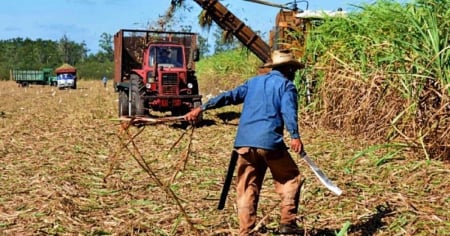The Cuban government announced that starting in January, it will pay inspectors and fines collectors based on their performance, amid the state campaign against private businesses.
Prime Minister Manuel Marrero announced in the National Assembly of the People's Power that a payment system has been approved to assess the effectiveness of the work performed by inspectors and all employees at the fine collection offices.
According to Marrero, the goal of this increase is to "do justice" for those individuals who earn "an extremely low salary" and go out every day onto the streets without favorable working conditions, facing violations that occur in the food sales sector and other services.
"In many cases, they face complex situations where people offend them; there have even been instances of assault, and the full weight of the law has been applied rigorously," he noted.
"With these actions and other supportive measures being taken in the provinces, we aim to improve the conditions for inspectors as well as for everyone else working in relation to the fines collection offices," he emphasized.
Last week, a violent incident occurred at the La Cuevita marketplace in the San Miguel del Padrón municipality of Havana. However, contrary to what the Prime Minister suggested, it was an inspector who attacked a vendor with a knife.
In the Facebook group "Food Delivery in Havana," a user identified as Yami La Dura reported that she witnessed the incident: "I saw everything and filmed it; it was the inspector's fault, he threw a bayonet at his neck. It was all very terrible..."
Some people questioned in the post why the inspector was carrying a knife.
In this regard, Annie Aguilera Tamayo stated, "Most of them are criminals, untrained individuals. That is what this country produces: criminals, thieves, scoundrels. There is no longer any staff that serves in any establishment (...) Furthermore, out of necessity and hunger, there is also brutality and savagery."
This is not the first time that violent incidents have involved vendors and inspectors.
In August, an inspector from the Inspection Directorate of the Las Tunas municipality was assaulted by a vendor while trying to impose a sanction on him, reported the region's Administration Council.
According to the statement released by the agency, the inspector was "conducting a control action on a self-employed worker," during which he identified several violations. The worker disagreed with the demand and attacked the inspector with a knife.
In July, the Deputy Minister of Finance, Lourdes Rodríguez, announced that she had prepared an army of 7,000 inspectors to enforce the maximum price cap on five basic products: detergent, powdered milk, soybean oil, pasta, chicken, and sausages.
Rodríguez pointed out that trained officials would join the inspectors to enforce Decree 30, which establishes the punitive measures for addressing price violations.
Frequently Asked Questions about the New Results-Based Payment System for Inspectors in Cuba
What does the new performance-based payment system mean for inspectors in Cuba?
The new results-based payment system aims to reward inspectors and fine collectors for their effectiveness in their work. The Cuban government will implement this system starting in January, with the goal of improving their working conditions and addressing the challenges they face in their daily tasks.
How has the economic crisis in Cuba impacted the measures implemented by the government?
The economic crisis has prompted the Cuban government to implement measures such as the payment of tariffs in foreign currency and the acceptance of cash in strategic sectors. These measures aim to generate more foreign currency revenue and regulate the partial dollarization of the economy, while also reflecting the complexity of the economic situation facing the island.
What is the relationship between the fines imposed and state control in Cuba?
The fines imposed are part of the government's effort to control the market and economic activities. Through these penalties, the government aims to regulate prices and combat violations, although this has also caused tensions and discontent among private sector workers.
What challenges do Cuban inspectors face in their daily work?
Cuban inspectors face complex situations, including assaults and offenses while carrying out their duties. Additionally, they work in an environment marked by low wages and inadequate conditions, which has led the government to implement a results-based payment system in an effort to improve their situation.
Filed under:
